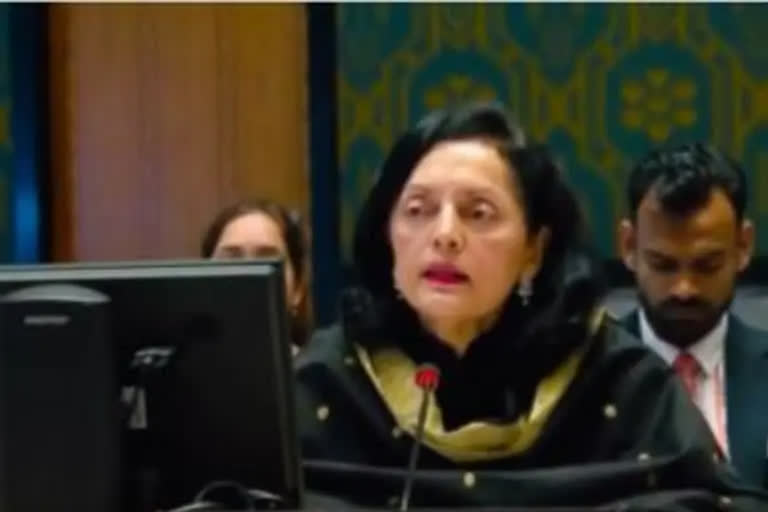United Nations: India has told the UN Security Council that there is a significant increase in ISIL-K presence in Afghanistan, as it warned that linkages between proscribed outfits such as Pakistan-based Lashkar-e-Taiba and Jaish-e-Mohammed and provocative statements by other terror groups pose a direct threat to the region's peace and stability.
As we have repeatedly stated at the Security Council, India has direct stakes in ensuring the return of peace and stability, given our position as a contiguous neighbour and long-standing partner of Afghanistan, as well as our strong historical and civilisational linkages to the Afghan people, India's Permanent Representative to the UN Ambassador Ruchira Kamboj said.
Speaking at the UNSC briefing on Afghanistan Monday requested by Russia under the Chinese presidency of the Council, Kamboj underlined that on terrorism, the recent findings of the 1988 Sanctions Committee's Analytical Support and the Sanctions Monitoring Team Report indicate that the current authorities in Afghanistan need to take much stronger action to fulfil their anti-terrorism commitments.
There is a significant increase in the presence of ISIL-K (The Islamic State Khorasan Province) in the country and their capacity to carry out attacks. ISIL-K, with its base reportedly in Afghanistan, continues to issue threats of terrorist attacks on other countries, she said. Kamboj told the Council that the series of attacks at religious places of the minority community, including the recent attack at the Sikh Gurudwara on June 18 in Kabul followed by another bomb explosion near the same Gurudwara on 27 July, is hugely alarming.
The linkages between groups listed by the UN Security Council such as the Lashkar-e-Taiaba and the Jaish-e-Mohammed as well as provocative statements made by other terrorist groups operating out of Afghanistan pose a direct threat to the peace and stability of the region,' she said. In her address, Kamboj stressed the need to see concrete progress in ensuring that such proscribed terrorists, entities, or their aliases do not get any support, tacit or direct, either from Afghan soil or from the terror sanctuaries based in the region.
On the political front, she said India continues to call for an inclusive dispensation in Afghanistan which represents all sections of Afghan society. A broad-based, inclusive, and representative formation is necessary for both domestic and international engagement, she said as she expressed New Delhi's concern at developments in Afghanistan which directly impact the well-being of women and girls.
We join others in calling for the protection of the rights of women and girls, and to ensure that the long-fought gains of the last two decades are not reversed, the Indian envoy said. UN Under-Secretary-General for Humanitarian Affairs and Emergency Relief Coordinator Martin Griffiths told the Council that Afghanistan is not just a humanitarian crisis but an economic crisis. It's a climate crisis. It's a hunger crisis. It's a financial crisis. But it is not a hopeless crisis. He noted that humanitarian organisations have done their utmost to provide the population in Afghanistan with a lifeline.
